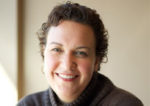The journey through domestic independent adoption is filled with professionals, all supporting you in myriad ways. From finding you a birth parent match, to supporting that relationship, and then legally binding it all together, there is one person or another by your side. And yet, my husband and I were adrift from the start. All the reading in the world did not prepare us for the things that we did not know and about which no one talked to us. We are intelligent professionals; we are used to running offices, deals, and whole projects. But we had no idea how to handle the murky, gray areas as we tried to become adoptive parents.
The first thing we realized is that independent adoption attorneys all work differently, and these differences are not apparent until you are presented with a placement. We interviewed three top lawyers in our area, each of whom highly recommended the other, and each of whom said we would be in good hands, regardless of which one we chose. So far, so good, we thought. It wasn’t until we actually started speaking to birth parents, and evaluating matches that we began to see how different each lawyer was.
Most lawyers actively advertise, in one way or another, to reach out to birth parents seeking adoption information and situations. Some want the prospective adopter to be the initial recipient of the birth mother’s phone calls. Others want to vet those calls themselves then put you in touch with the birth mother. We chose to be the initial recipients of the calls. We installed a toll-free line in our home, and waited for the phone to ring. Our lawyer preferred this method, which allowed a quick personal connection with any birth situation that arose. To us, it felt like we were taking charge. After years of failed attempts to grow our family, the desire for control was all consuming.
After our second call, it was clear we were in over our heads. We were emotional puddles trying to sound like coherent adults to scared and confused birth parents. We were neophytes lost in a strange land. Why wasn’t our attorney making the important first impression? Well, because that was not what we had chosen. In hindsight, I realize how much work our lawyer abdicated to us. We hadn’t been counseled enough to know what we would feel when answering those calls.
It wasn’t just the emotional ride, there were also prank calls. After the second one, I dreaded hearing the phone ring. I would look at the caller ID and shiver. Was this call a real birth parent, or would I be asked for a photo of me in a bathing suit again? I wondered what on earth makes someone see an adoption ad and decide that this would be a good person to call on a sadistic whim.
After months of calls, some real, some not, most dead ends, we finally matched. I dove into a relationship with our birth mother. She lived out of state and was planning to come to us for the delivery. We developed an intimacy very quickly; we were sharing the emotional roller-coaster ride of an impending birth, as well as her daily life issues. And yet, it was a false closeness. There were huge chunks of information that we did not know about one another, and never will. The basics were shared — medical information, background about her and the birth father, family details about us — but I cannot say that I know the core of our birth mother, nor does she know me. We probably never will. No one seems to tell you the truth about the relationship with your child’s birth mother: It is honest only to a point. You are not looking for a co-parent, a life partner, or a new best friend. So you strive for truth, hope that it is given to you in return, but you are ultimately taking a leap of faith in binding yourself to this person or family. There is no other relationship like it, and it tested our capacity to trust, more than anything I have ever experienced.
When Jane arrived in town, we spent a lot of time together, and I have a wealth of stories to share with our daughter. But we were not prepared for how it would feel to be with her for such an extended period of time, and it got really sticky. We didn’t know what to talk about and what not to talk about, what might upset her or what she may or may not want to know about her child’s future with us. I needed to learn to handle this new friendship while guarding myself and my family. Other families we knew who had adopted domestically did not have such relationships with their birth mothers, our friends from home-study class were all in earlier stages of adopting, and our lawyer was not available all the time. Our social worker was kind, but she was not the person to turn to. I wanted to make sure that, when relinquishment happened, our birth mother knew how much she meant to us, and what a gift she was giving to us. But what if — that horrible, gnawing fear — what if, at the last moment, she didn’t relinquish? I needed to protect us from that possibility.
There are therapists who specialize in adoption, and I wish that I had sought help from one of them. But you keep thinking that this will pass, the baby will be born, and life will return to a proximity of normal. What I did not figure on was the aftermath of so much internal drama; as the cliché says, everyone needs someone to lean on.
And then there were the kids. Jane is parenting two other children, and they came with her when she came to town. We had a four-year-old, and the three children together became a source of deep pain. They were all struggling with what adoption meant, from various developmental places, and from different sides of the placement equation.
We had talked with our lawyer about bringing our birth mother and her kids out all together. He focused on the logistical aspects, and said he had overseen numerous situations like this. It would be manageable, he said. But no one can prepare you for driving on the freeway with no exit in sight, while three kids fight in the back seat. One of them is yours, two of them are your birth mother’s. She is sitting next you, ready to deliver any moment and needing to go to the bathroom worse than anything. Who did I attend to first? My child? The one who was crying the hardest? Jane? Disciplining someone else’s child is treacherous at best, and in this situation it was near impossible. I asked my husband later if this was really worth it. Were we permanently damaging our other child, putting him through all of this? No one told us what it would mean to have all the kids interact on such a regular basis. I hadn’t understood that it wasn’t done very often, and that advice would be in short supply. A little forethought, a shred of counsel from a friendly professional, would have gone a long way.
I thought, if I could arrange everything, and keep everyone happy and taken care of, that it would all turn out fine. This was my need to control at work again. And again, how wrong I was. When Jane went for appointments, to her social worker, to the agency, to her doctor, I had to take her. That meant someone else had to take care of the kids. Between family and babysitting agencies, we were able to manage. But once she went to the hospital to deliver, it all fell in on us. Her kids missed their mother, and they were afraid, in a strange, rented apartment, in a city where the only people they knew were us. We had a new baby at home, and we wanted to spend every moment with her. I called our lawyer to say we were past our limit handling all this, he told us that the week after birth is the hardest, hold tight, it will pass. That was it, “It will pass.”
And then, there was this wonder, this beautiful child in our arms, our daughter. And it was all happening because we were meant to be her parents, this was our journey toward that goal. It was not the journey I intended to take, nor the one I planned for, nor one I would repeat, but it was meant to be. We made it through those final five days, sleep-deprived, anxious, but happy too. We gathered our strength to support our child’s birth mother, her kids, and our own, one day at a time. But each day I said to myself, “If only someone had warned us, if only I had known what to expect, this would have been easier.”
The day before our child’s birth mother and her children were supposed to go home, both families got together one last time. We went to a park. We had a picnic in the high winds, and ended up hanging out at the mall. We spent a whole day together, just together. Then it was time to say goodbye.




